Childhood friends and filmmakers Steve Ecclesine and Greg O'Brien discuss their new documentary feature, Have You Heard About Greg? and its inspiration: O'Brien's own life following his 2009 Alzheimer's diagnosis.
A career journalist, newspaper and magazine editor, Greg O’Brien learned from his mother what it means to truly live with Alzheimer’s, and it was her inspiration that prompted him to write and speak openly about his own diagnosis of early-onset Alzheimer’s at 59. In 2014, O’Brien, now 71, published a memoir, On Pluto: Inside the Mind of Alzheimer’s, and this week, a new documentary feature film about his life celebrates its world premiere at the second annual Filmocracy Fest in Los Angeles and a nationwide release in early 2022.
Written and coproduced by O’Brien, Have You Heard About Greg? A Journey Through Alzheimer’s With Faith, Hope and Humor, is a personal, authentic account of Greg’s Alzheimer’s journey and his drive to break the silence surrounding dementia. Powerfully told, its production is supported in part by drugmakers Eisai, Lilly and Biogen, who, according to the film’s marketing team, have in some cases expressed interest in sharing the film to help with recruitment for Alzheimer’s clinical trials.
In advance of the premiere, Being Patient spoke with O’Brien, a subject of the documentary, and Steve Ecclesine, a childhood friend of O’Brien and the film’s director and producer, about the inspiration behind the documentary and O’Brien’s diagnosis.
Being Patient: Steve, tell us about how you reconnected with Greg.
Steve Ecclesine: It was an unusual set of circumstances. While I was [at the] 50th high school reunion, one of Greg’s and my childhood pals came up to me and said, ‘Have you heard about Greg?’ Those five words changed my life.
I found out that Greg had written a book called On Pluto: Inside the Mind of Alzheimer’s. I got in contact with him and he said, ‘I’m going to be coming out to Scottsdale, Arizona, right after the first of the year to give a speech to 400 caretakers from the aging life care advocates group.’ And I said, ‘Great, I’ll bring cameras.’ It [was] a blind date after 50 years. I came out with the cameras and met Greg again. We looked at each other strangely. Then, we sat down, started talking and like with anybody who you’ve had a friendship with, you just pick up where you left off and start talking.
I loved how he handled the crowd of 400 people and I said, ‘There’s something here that’s just magical.’ I thought, ‘Maybe it’s a short film.’ Steve James had done a short film with Greg before and I’d seen that. Then [Greg started] turning over his Rolodex, handing me some of these top people in the fight against Alzheimer’s. There’s Lisa Genova, George Vradenburg, Rudy Tanzi, these amazing people who sat down and told me the truth.
So I started shooting, but I didn’t know what I had until I really sat down and started looking at the people that he had introduced me to. I said, ‘This is magic. This is information that people need to get their hands on.’
Being Patient: Greg, your message in both On Pluto and the documentary is about living with Alzheimer’s, not dying with Alzheimer’s, and your diagnosis doesn’t seem like a tragedy. Tell us more about this message.
Greg O’Brien: I don’t want it to be a tragedy or a train wreck because if that’s the case, people will feel pity as opposed to listening and learning.
I lost my maternal grandfather, my mother, my father and paternal uncle to Alzheimer’s and other forms of dementia. I was at the deathbed of both my father and mother. While I was there with my mom [for] her last few minutes, I said, ‘We’re going to bring this disease out of the closet.’ So I started writing down everything. Before my mom died, I was starting to experience the symptoms of short-term memory, not recognizing people, loss of place and loss of self and I was scared shitless. What propelled me was my mother, a hero of my life, who taught me how to live with Alzheimer’s.
“What propelled me was my mother,
a hero of my life, who taught me
how to live with Alzheimer’s.”
Despite the stereotypes of Alzheimer’s, it’s a 20- to 25-year course. I was diagnosed early. One of my best friends was my personal physician. He got me in touch with experts who did brain scans and the diagnosis was early-onset Alzheimer’s. None of it was a surprise. I remember sitting at [the doctor’s office] with my wife when [the neurologist] gave a diagnosis. I felt tears coming down my cheeks. I grabbed my wife’s hand and I said, ‘What about the kids?’ Alzheimer’s is really about the next generation. My train has left. There’s no magic wand for me. I also have prostate cancer that’s advancing.
It’s about [educating] my children, my three grandchildren, and everyone else’s children and grandchildren to realize that this is a disease that, over a period of time, you can live with. But get an early diagnosis. People live in the shadows and fear. They don’t want to get a diagnosis until they’re 10 years into it.
Being Patient: How did an early diagnosis benefit you?
Greg O’Brien: It gave me a roadmap. As a journalist, I was fortunate enough to be able to connect with some of the top Alzheimer’s experts in the world, and they helped me. I was talking to them to write the book, but they helped me on my journey by giving me strategies and I wanted to share the strategies with others.
Being Patient: What was it like telling your family about your diagnosis?
Greg O’Brien: The hardest thing was to tell my kids. They were out of the house at the time because they were older. I summoned them all to our house in Cape Cod under the guise of [going to] dinner at a favorite restaurant by the sea. They were all waiting and I was in the [bedroom at home] and felt like Luka Brodsky in the Godfather preparing my speech. I was just so nervous.
I went out finally and my wife Mary Catherine said, ‘Your dad needs to tell you something.’ I said, ‘What took your grandmother, I have now and I’ve been diagnosed with early-onset Alzheimer’s.’
Brendan, my oldest boy who’s a writer, producer in Boston, said, ‘Well Dad, that explains a lot.’ The whole family was talking about it behind the scenes, wondering what’s wrong with Dad, ‘He’s not the outgoing guy that used to be. He can’t remember anything. He can’t remember people. He drifts out. What is going on with him?’ My son Conor got to the point and said, ‘So you’re losing your mind, Dad.’ I said, ‘Yeah. It’s time for dinner. Let’s go.’
Want to learn more about clinical trials
for Alzheimer’s and dementia?
Check out the Lilly Trial Guide.
If I could just tell a story for people to understand the dynamic here, and it’s in my book: A couple of days later, we were supposed to go to Coronado in San Diego for a family reunion. I got there early with my son Brendan. I named him power of attorney. I said, ‘We got to talk,’ and we’re on the balcony of this beautiful hotel in Coronado. I got the 85 pages of notes that basically said I was losing my mind. Brendan said, ‘I don’t want to hear about it. It’s bullshit,’ dropped some F bombs, and I read some more.
Finally he grabbed my 85 pages of medical notes, ripped them into shreds, threw them off the balcony and said, ‘This is bullshit Dad because I know it’s true.’ He buried his head on my shoulder and we cried. That’s what it’s like as a family. This journey is not easy. I don’t want anyone’s pity. But I pick and choose my moments [of] when to talk and when not to talk because I don’t want people to see me when I’m down. But that’s how the family came together.
Being Patient: What do you hope people can take away from the documentary?
Steve Ecclesine: I’m hoping that people come away with a sense of hope. … [Our goal is to] get people talking, [which could] increase the funding [for research]. To the individual who takes this message personally, the next time they go in to see their doctor, [we hope the documentary will prompt them to] ask about their brain health.
Greg O’Brien: Part of my journey is to expand the understanding of this disease. Alzheimer’s is the most prevalent [form of dementia], but dementia is the umbrella [term] and people need to be concerned about all forms of dementia.
The interview has been edited for length and clarity.
Contact Nicholas Chan at nicholas@beingpatient.com
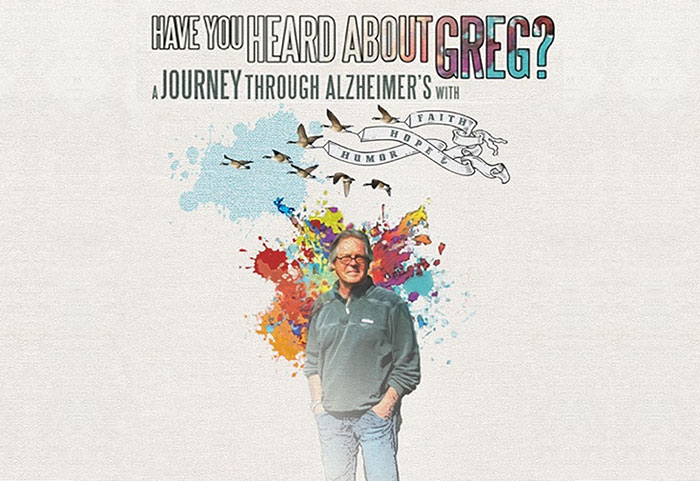
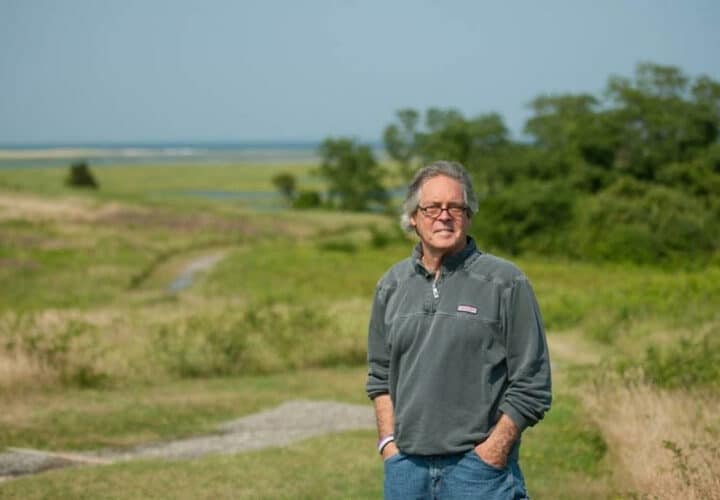
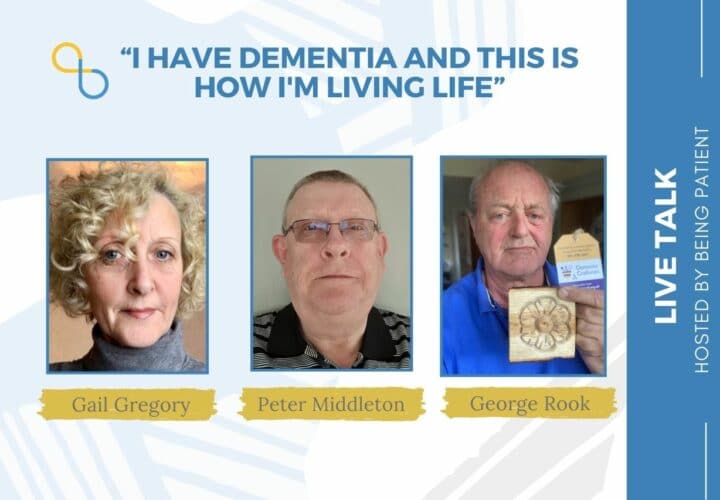
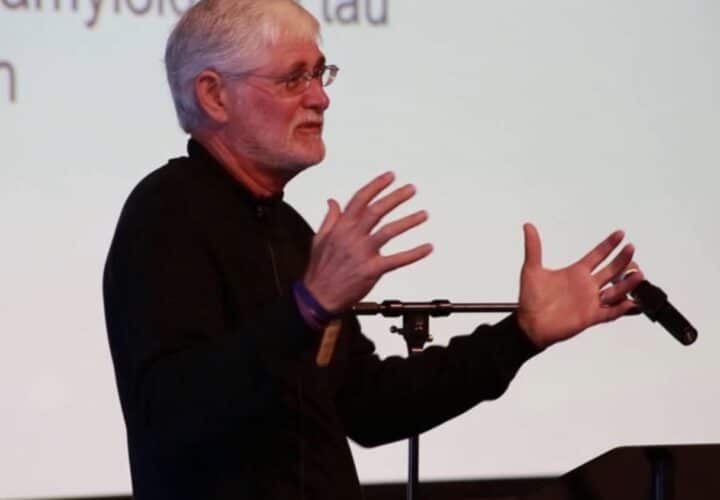
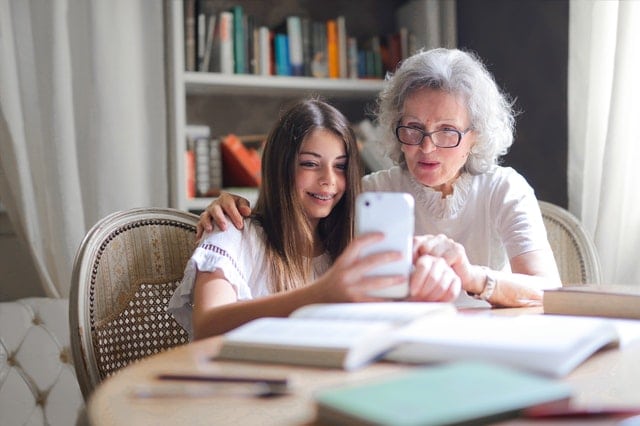
I will be 70 in Feb. I was finally diagnosed in July. Not by my medical doctor, but by a NeuroScience Lab in Ft Myers, FL that I ran across via Google that was conducting drug study trials for Alzheimer’s disease. I needed answers. I had watched my Mother and now my Mother in law both deteriorate cruelly with this disease. I was accepted by undergoing a verbal interview, then lab work, MRI’s and Pet Scans that indeed confirmed my suspicions of ALZHEIMERS via “amyloid plaque”. Finally, I was getting some answers. I end stage Eli Lily 18 month drug trial study where I would get the drug infusions with no placebo involved. I am hopeful and thankful.
I really liked Greg O’briens Alzheimer’s story. Thank you for sharing. The more I read and learn, the more encouraged I get. When in this altogether and anymore it seems to affect everyone.
My husband had alzheimers.He aso was not your typical patient. He loved going out and enjoyed the company of friends and family.He was always joking and laughing up untilthe day he died,. I feel so blessed to be able to share his journey.